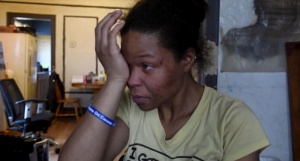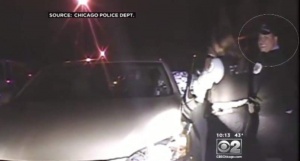This is how religion can be ‘as attractive as heroin’ — and how to treat the addiction

Although he quit believing in God as a teenager, 50-year-old Brandon Osborn feared hell and damnation until he was 35. Raised in the “holiness movement” branch of the Church of LDS after escaping his mother’s abusive home, Osborn finds addiction and recovery fitting symbols for his experience.
“I consider religion to be an imposed addiction—no different than holding a baby and shooting it up with small doses of heroin, increasing the doses as the baby grows,” he says. “Religion is as poisonous and as attractive, to many, as heroin—Karl Marx said it right, ‘Religion is the opiate of the masses.’ I’m still recovering from it. Part of my recovery is helping others get free.”
****
Can you really become addicted to religion? Well, the risk of any activity or substance becoming an addiction depends in part on the characteristics of the substance or activity, and in part—some experts believe most significantly—on the characteristics of the situation and user.
For even the most intense pleasures—those that tend to create the highest rates of compulsion—most users retain their capacity for autonomy and balance. Most people can ingest a pleasurable neurotoxin like alcohol or even cocaine in moderation, for example, while others find themselves drawn inexorably toward self-destruction. The same can be said about pleasurable activities like sex or gambling. And the same is logically true of religiously-induced pleasures—including intense feelings of euphoria, transcendence, hope, joy, absolution, security, immortality, certitude, purity, purpose, belonging, or superiority.
Chris Scott, a former devout Bible-believer from Phoenix, notes how the euphoric feelings spurred by religion have the potential for poor outcomes. Scott says that his experience was “most definitely” like an addiction. “The best definition of addiction that I’ve ever heard,” he says, “is anything that provides a mood-altering experience but has adjoining negative consequences, and yet the behavior is continued anyways.”
****
In recent decades, the idea of recovery from addiction to religion has taken root, particularly in Christian America. A proliferation of websites provide platforms for sharing stories, like exChristian.net, or offer support and help, like RecoveringfromReligion.org. There are self-help books, too: When God Becomes a Drug, by Father Leo Booth, promises readers “practical ways to overcome excessive devotion and attain healthy spirituality.”
Thousands of testimonials leave no doubt that going cold turkey—abruptly quitting a faith or religious community—can leave people who quit religion experiencing both residual symptoms from their time in the religion, and withdrawal symptoms.
“Here I am, a 51-year old college professor, still smarting from the wounds inflicted by the righteous when I was a child,” reads an anonymous online testimonial. “It is a slow, festering wound, one that smarts every day—in some way or another … . I thought I would leave all of that ‘God loves … God hates…’ stuff behind, but not so. Such deep and confusing fear is not easily forgotten. It pops up in my perfectionism, my melancholy mood, the years of being obsessed with finding the assurance of personal salvation.”
“Despite the fact that I’ve intellectually broken from Christianity, however, I cannot seem to let go of my beliefs. Every single day is a nightmare, plagued with mild panic attacks, de-realization, doubt, OCD, etc.” relates another former Christian in the book Christianity Is Not Great. “Sometimes I think, “Oh, but this is exactly what they warned me about, the world can’t be trusted, and it doesn’t matter what reason says, the fact is that Christianity is true no matter what and even if it flies in the face of all reason. Reason is unreliable and you just have to keep believing. I know this is illogical, but every time I try to convince myself that, my brain just stubbornly insists that I just believe, believe, believe. My life is a living hell.”
Dr. Marlene Winell, a human development consultant who works with people who identify as being in recovery from addictions to religion, says that her clients are not simply people who would otherwise struggle with mental health issues. Rather, they are people who get sucked into toxic versions of religion because they care deeply about doing good and living well, and once free, many transition to other world-views that promote both meaning and happiness. The book A Better Life offers a window into how former believers, including Winell herself, find joy and purpose.
Winell uses the term religious trauma syndrome to describe the most severe psychological damage arising from harmful experiences with religion. According to Winell, the psychological harms of Christianity can be “the result of two things: immersion in a controlling religion and the secondary impact of leaving a religious group.” Online forums such as ExChristian.net post testimonials detailing these harms and the recovery process, and provide online community for those in transition.
****
Just like any drug, religion can be a lot of fun for some. In her book Sober Spirituality, author Elizabeth Esther describes how church experiences produce a “high.”
There’s the ubiquitous mood lighting so that you can only see what’s meant to be seen… Loud music ensures you hear only what is meant to be heard… Several high-energy warm-up acts make you feel only what you’re supposed to feel… By the time the featured attraction steps on stage… you’re so amped up you’ll hand over your body, soul, and wallet. It doesn’t even occur to you that this might be destructive, because feeling elated is the desired outcome.
The result, says Esther, can be a destructive quest for righteous euphoria.
Former Christian Nate Zimmer describes the feelings of euphoria he experienced when he was a part of the Charismatic Christian sect. “You live for the high of having a metaphysical encounter with God, but more than anything you hope to have that experience in the presence of other believers,” he says. “From conference to conference, waiting to see or hear the next great prophet or miracle worker. The substance of their message is often secondary to their ‘spiritual anointing.’”
The Phoenix-based blogger Sandra Kee, who calls herself a “Christian heretic,” sees her family’s history as trading one addiction for another. “My family for several generations was in a dysfunctional and addictive religious life, using God—or what we believed about God—as a drug. Many of the family who left religion simply traded for another addiction,” she says. “The generations that entered into religion did so to escape alcoholism and other addictions, though it wasn’t called addiction back then. Many who remained in religion developed additional addictions as well.”
So when does the quest for healthy spirituality cross over into addiction? On the internet, checklists can be found at both self-help sites and listings for professional recovery services. They include symptoms that would sound familiar to anyone acquainted with addiction (or Al-Anon):
- Do you use religion to avoid social and emotional problems?
- Are you preoccupied with religion to the point of neglecting work?
- Does your commitment to a religious leader or institution take precedence over your children and family relationships?
- Does religion isolate you from outside friends and activities?
- Do you use religion as an excuse when you are abusive to friends or family members?
- Would people who know you describe your religiosity as extreme or obsessive?
- Are your religious contributions financially imprudent?
- Do you feel irritated and act defensive when someone questions your religion?
But religious addiction checklists and books often also include symptoms that, while psychologically unhealthy, may have little to do with diagnosing addiction.
- Do you use guilt to beat up yourself or others?
- Do you think of sex as shameful or dirty?
- Do you use religion to manipulate or exploit others?
- Does your religion threaten violence against people who believe differently?
- Are you uncompromising and judgmental, quick to find fault in others or evil in the world?
- Do you find yourself arguing against scientific evidence to defend your religion?
- Do you wait for God to fix things in your life or blame your problems on supernatural forces?
- Do you tell other people “what God wants” or the “right” way to interpret the Bible?
- Are you preoccupied with sin and the afterlife?
- Do you experience psychosomatic symptoms, like headaches and backaches?
- Do you threaten others with divine punishment or otherwise try to control them?
Without a doubt, a yes to any of these questions suggests that something is out of whack. Each of these patterns can interfere with healthy self-esteem, personal empowerment, community engagement, or loving relationships.
In fact, research suggests that participation in some form of religious community may be adaptive. Recognizing this, humanist and atheist groups have begun experimenting with how to create secular churches—communities that meet to channel wonder, provide mutual support, talk about deep values, and inspire service. These experimental communities are exploring how to keep some of the best of religion without the parts that lead people to talk about religion being addictive or harmful, such as the certitude, euphoria, and exclusive insularity that make withdrawal so difficult for former Christians and members of other faiths.
In the end, the issue of whether religion is addictive for you comes down to similar questions to the ones you might ask yourself about your drug use: Has your religion eaten your life? Does it feel freely chosen or compulsive (and how would you know)? What are the good things about it? And what price are you or others around you paying for the good stuff you get?
Valerie Tarico is a psychologist and writer in Seattle, Washington, and the founder of Wisdom Commons. She is the author of Trusting Doubt: A Former Evangelical Looks at Old Beliefs in a New Light and Deas and Other Imaginings. Her articles can be found at valerietarico.com.
































